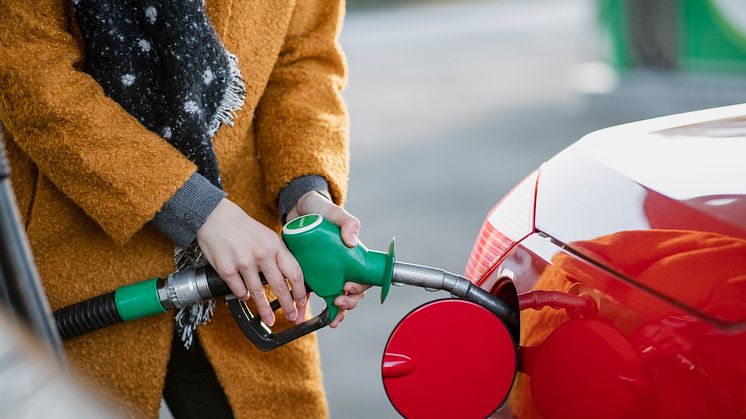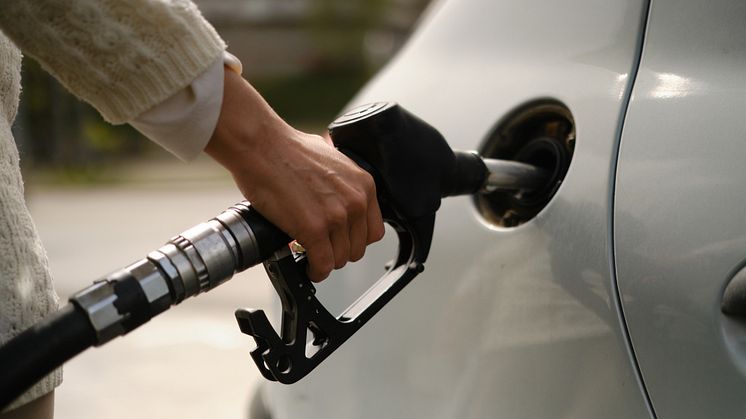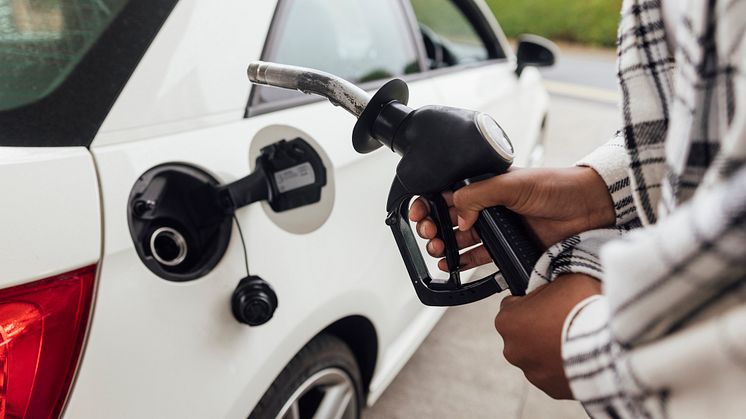
Press release -
Fuel prices fall for fourth month in a row but dark clouds loom
The cost of both petrol and diesel fell for the fourth consecutive month in February, yet drivers dependent on diesel continue to be overcharged at the pumps, data from RAC Fuel Watchreveals.*
February saw the average price of a litre of unleaded come down another penny (1.26p) to 147.72p, while diesel dropped 3.19p to 167.19p. The falls make the cost of filling a 55-litre family petrol car £81.25 (down £0.69 from £81.94 a month earlier), and the diesel equivalent £91.95 (down from £93.71 at the start of February).
While the reduction in diesel prices is good news, wholesale price data analysed by the RAC shows drivers of the UK’s 12m diesel cars continue to pay a needlessly high price every time they fill up. Despite there being just a 6p difference between the wholesale prices of both diesel and petrol throughout all of February, diesel pump prices are currently a colossal 20p more than petrol. This means anyone filling a diesel car is, the RAC calculates, paying around £7 more per tank than they should be if diesel was being sold at a fairer price of around 155p a litre.
What’s more, drivers face a ‘pump price shock’ in less than two weeks unless the Chancellor decides to keep the 5p duty cut put in place a year ago, and cancel the annual planned hike at the Spring Budget on 15 March. If the duty cut was to be removed as originally planned, the RAC says current petrol prices would rise to 153.72p and diesel to 173.19p when factoring in VAT.
To put today’s prices into context given the Chancellor’s imminent decision on what to do with fuel duty, average petrol prices are currently slightly lower than they were 12 months ago (147.72p this year compared to 151.16p), but diesel is significantly higher (167.19p compared to 154.75p) – despite wholesale diesel prices being extremely similar to where they were a year ago (122.76p at the end of February 2022, 119.09p at the end of last month).
RAC fuel spokesman Simon Williams said:
“A reduction in pump prices would normally be extremely welcome news for drivers, not least in a cost-of-living crisis that is making the price of so many everyday items and services much more expensive than normal. But while our analysis shows drivers of petrol cars are paying a fair price at the pumps, the same sadly can’t be said for anyone whose vehicle runs on diesel.
“Retailers really ought to demonstrate they’re on the side of drivers by cutting their diesel prices now – not least as the wholesale price is on a par with where it was 12 months ago, yet the price they’re charging drivers at the pumps remains needlessly high.
“All eyes are now on what the Chancellor decides to do with fuel duty at the Budget in just two weeks’ time. While we accept the 5p cut introduced last year can’t last forever, with household finances under even more pressure this Spring than they were a year ago, we don’t think now is the time to be removing it.
“To decide to raise prices by 5p on both fuels would prove punishing to households and businesses struggling to make ends meet, and may have a detrimental effect on both inflation – which the Government is desperate to bring down – and the wider economy. In the case of diesel, it would also mean the UK has the highest fuel duty rate in the whole of Europe.
“We also hope Mr Hunt isn’t about to become the first Chancellor in 12 years not to cancel the annual planned fuel duty rise. If he were to go ahead with it, untold damage could be caused.”
Prices around the UK
| Unleaded | 01/02/2023 | 28/02/2023 | Change in month | End of month variance to UK average |
| UK average | 148.98 | 147.72 | -1.26 | |
| East | 150.19 | 148.66 | -1.53 | 0.9 |
| East Midlands | 150.14 | 148.73 | -1.41 | 1.0 |
| London | 150.59 | 149.26 | -1.33 | 1.5 |
| North East | 147.04 | 145.97 | -1.07 | -1.8 |
| North West | 146.92 | 145.56 | -1.36 | -2.2 |
| Northern Ireland | 145.43 | 144.59 | -0.84 | -3.1 |
| Scotland | 147.41 | 146.35 | -1.06 | -1.4 |
| South East | 150.59 | 149.19 | -1.4 | 1.5 |
| South West | 150.18 | 149.21 | -0.97 | 1.5 |
| Wales | 147.05 | 145.90 | -1.15 | -1.8 |
| West Midlands | 149.16 | 147.74 | -1.42 | 0.0 |
| Yorkshire and The Humber | 149.03 | 147.74 | -1.29 | 0.0 |
| Diesel | 01/02/2023 | 28/02/2023 | Change in month | End of month variance to UK average |
| UK average | 170.38 | 167.19 | -3.19 | |
| East | 172.53 | 170.03 | -2.5 | 2.8 |
| East Midlands | 171.44 | 168.43 | -3.01 | 1.2 |
| London | 172.26 | 168.79 | -3.47 | 1.6 |
| North East | 168.00 | 165.11 | -2.89 | -2.1 |
| North West | 168.86 | 166.06 | -2.8 | -1.1 |
| Northern Ireland | 164.91 | 159.29 | -5.62 | -7.9 |
| Scotland | 168.74 | 165.55 | -3.19 | -1.6 |
| South East | 172.55 | 169.49 | -3.06 | 2.3 |
| South West | 171.86 | 169.28 | -2.58 | 2.1 |
| Wales | 167.75 | 164.50 | -3.25 | -2.7 |
| West Midlands | 170.41 | 167.29 | -3.12 | 0.1 |
| Yorkshire and The Humber | 170.67 | 167.06 | -3.61 | -0.1 |
Find out more about UK petrol and diesel prices on the RAC website.
Topics
Categories
The press office email address is press.office@rac.co.uk and media centre is at media.rac.co.uk. Please note: the press office is unable to help with individual customer enquiries - please visit the RAC contacts page to find the right contact.
About the RAC
The RAC, an iconic UK brand, provides complete peace of mind to 13 million UK private and business drivers, whatever their motoring needs. As well as its premium nationwide breakdown assistance service – with an expert branded patrol workforce attending more than two million breakdowns every year – it offers a wide range of market-leading products across insurance, legal services, vehicle inspections and service, maintenance and repair. The RAC is also at the forefront in helping drivers make the switch to electric vehicles and leads in the development of new solutions for businesses and OEMs, partnering with the best in the motoring and mobility space.
Visit the RAC website.



